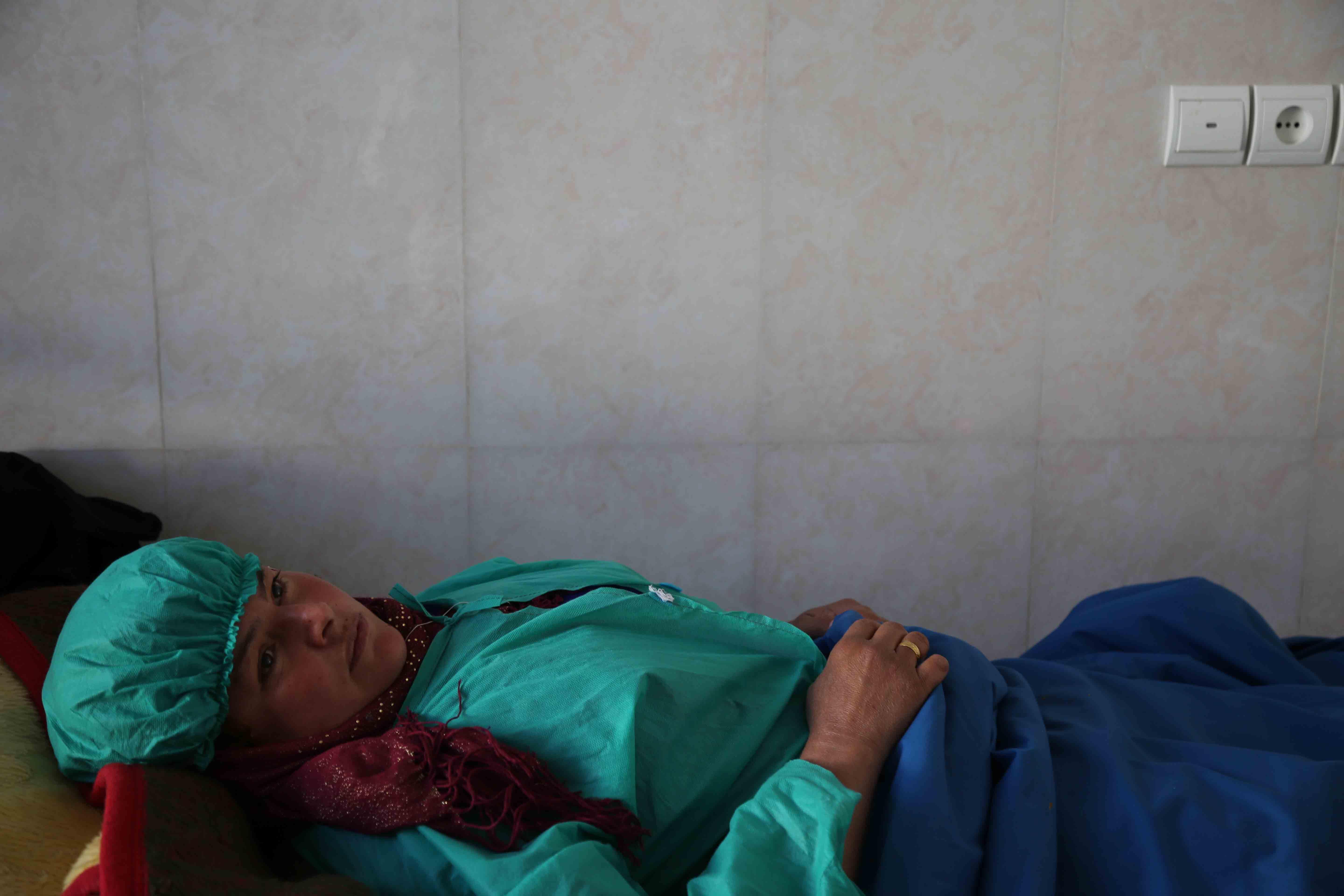With the technical and financial support of UNFPA, Ministry of Public Health of Afghanistan established its second obstetric fistula treatment centre in Herat regional hospital. UNFPA provided trainings for 9 health workers including surgeons, midwives and an anesthesiologist. In this centre, 27 patients with pelvic floor disorder including obstetric fistula have received successful repair surgeries.
Obstetric Fistula is a child birth injury, a hole or fistula from the urinary bladder and/or the rectum to the birth canal. Mainly caused by prolonged obstructed labor, the condition devastates lives of women, leaving them with constant leakage of urine or faeces or both.
Three per cent of women in Afghanistan have had symptoms of fistula, both in urban (4 per cent) and rural areas (3 per cent), however, more than half of these mothers did not seek treatment, (Afghanistan Demographic and Health Survey, 2015).
“I think I am reborn after the surgery. I am going to start a new and clean life when I go home”, said Jamila, 30, mother of one girl got a surgical repair for obstetric fistula at the UNFPA supported Obstetric Fistula Treatment Centre in Herat.
At the fistula treatment centre in Malalai Maternity Hospital an average of 5 patients receive repair surgeries every month.
The condition can be simple and repairable with one surgery session or it can be very complicated and require multiple surgeries to heal. However, the good news is that the condition is repairable and with UNFPA support there are 2 treatment centres in the Country, one in Kabul, at Malalai Maternity Hospital and another in Herat regional hospital. UNFPA plans to support the establishment of three more Fistula Treatment Centres in Nangarhar, Kandahar and Balkh.
UNFPA hired an international fistula surgeon in November 2017 to provide practical on the job training to surgeons from Herat and also Nangarhar regional hospital. Around 90 Afghan mothers living with obstetric fistula will be operated and rehabilitated to regain their normal lives.
The patients will receive repair surgeries during a period of more than one month. In the meantime, national surgeons will have enough time and clinical volume to acquire the delicate and very unique skill to repair obstetric fistula. They will observe and participate in the 90 surgical repair processes under the close mentorship and technical supervision of the international recognized surgeon.


